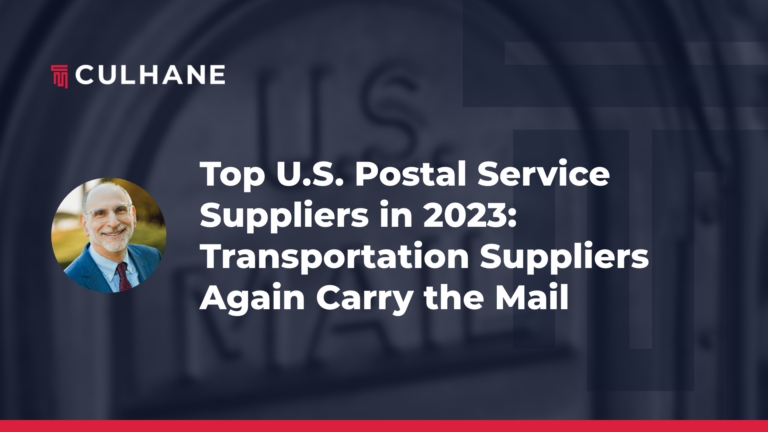Law360 recently published an article authored by Culhane Meadows’ New York partner, Robert Kiggins, about the final GILTI and FDII regulations that were released by the Treasury Department in July.
Here’s a short synopsis of the article:
Both global intangible low-taxed income, or GILTI, and foreign-derived intangible income, or FDII, are creatures of the Tax Cuts and Jobs Act enacted on Dec. 22, 2017. GILTI has been plagued with technical issues from the very start and FDII has been under criticism internationally as an illegal export incentive or harmful tax practice.
In July, final regulations were released on GILTI and FDII as well as proposed regulations unifying the treatment of high-taxed GILTI and high-taxed Subpart F income. These regulations largely address technical issues, but it would seem that more substantive problems still remain.
…
What Has Been Accomplished
To say that all of this, while perhaps a great intellectual achievement by those involved, is a highly complicated area of federal tax law is an understatement.
These complications are further exacerbated by the fact that not all states in the U.S. conform totally, or sometimes at all, to the federal FDII and GILTI rules. So taxpayers in the U.S. trying to cope with GILTI and FDII can face a bewildering maze of inconsistent laws that may vary from state to state — and perhaps city to city as well — making planning and compliance challenging to say the least.
Certainly, the — to my mind — clear congressional intent to limit GILTI so that it would not apply to income already taxed at 13.125% or higher has not been achieved. The chief bugaboo leading to rates much higher than this, for corporations up to the full 21% corporate rate, was that foreign tax credit limitations can apply, creating much higher GILTI payments for some companies than was anticipated by Congress.
However, in fairness it must be said that the GILTI high-tax exception provides some relief as, at present, it caps GILTI so that it will not apply to foreign income that has already been
taxed by other jurisdictions at rates of 18.9% or more. But this is still a 5.775% difference from 13.125%.
At the international level, FDII was under attack in 2019 by the European Commission as potentially violating World Trade Organization rules by providing unfair tax export incentives
for the U.S. placement of intangible assets. And there had been rumblings from the Organization for Economic Cooperation and Development that FDII could be a harmful tax practice hurting the tax base of non-U.S. countries. However, things on the anti-FDII front have been a bit quiet of late save for some reported saber-rattling from Germany.[19]
It has been speculated that perhaps the finalization of the FDII and GILTI regulations, which now seems to have been accomplished, was awaited before these bodies would take action.
One would think, too, that the global focus on the COVID-19 pandemic might have diverted focus away from attacks on FDII. And even the international fate of GILTI seems to be somewhat uncertain under a potential global minimum tax being developed by the OECD.
The wild cards are (1) the effect of the upcoming November elections on taxation here in the U.S., and (2) what will come to pass with U.S.-world trade relations in the future. Will tax rates here, corporate or individual, be raised? Will a regime change here, if any, have a positive, negative or neutral effect on trade relations?
All the foregoing factors, and likely more, make compliance and planning for persons and businesses affected by GILTI and FDII extremely challenging and expensive.
As always with tax, stay tuned for future developments. Yes, death and taxes are inevitable but, as far as I know death is a permanent state. Not so tax law — which of late seems to be changing at an exponential rate.
Read the entire article HERE.
About Culhane Meadows – Big Law for the New Economy®
The largest woman-owned national full-service business law firm in the U.S., Culhane Meadows fields over 70 partners in ten major markets across the country. Uniquely structured, the firm’s Disruptive Law® business model gives attorneys greater work-life flexibility while delivering outstanding, partner-level legal services to major corporations and emerging companies across industry sectors more efficiently and cost-effectively than conventional law firms. Clients enjoy exceptional and highly-efficient legal services provided exclusively by partner-level attorneys with significant experience and training from large law firms or in-house legal departments of respected corporations. U.S. News & World Report has named Culhane Meadows among the country’s “Best Law Firms” in its 2014 through 2020 rankings and many of the firm’s partners are regularly recognized in Chambers, Super Lawyers, Best Lawyers and Martindale-Hubbell Peer Reviews.
The foregoing content is for informational purposes only and should not be relied upon as legal advice. Federal, state, and local laws can change rapidly and, therefore, this content may become obsolete or outdated. Please consult with an attorney of your choice to ensure you obtain the most current and accurate counsel about your particular situation.









